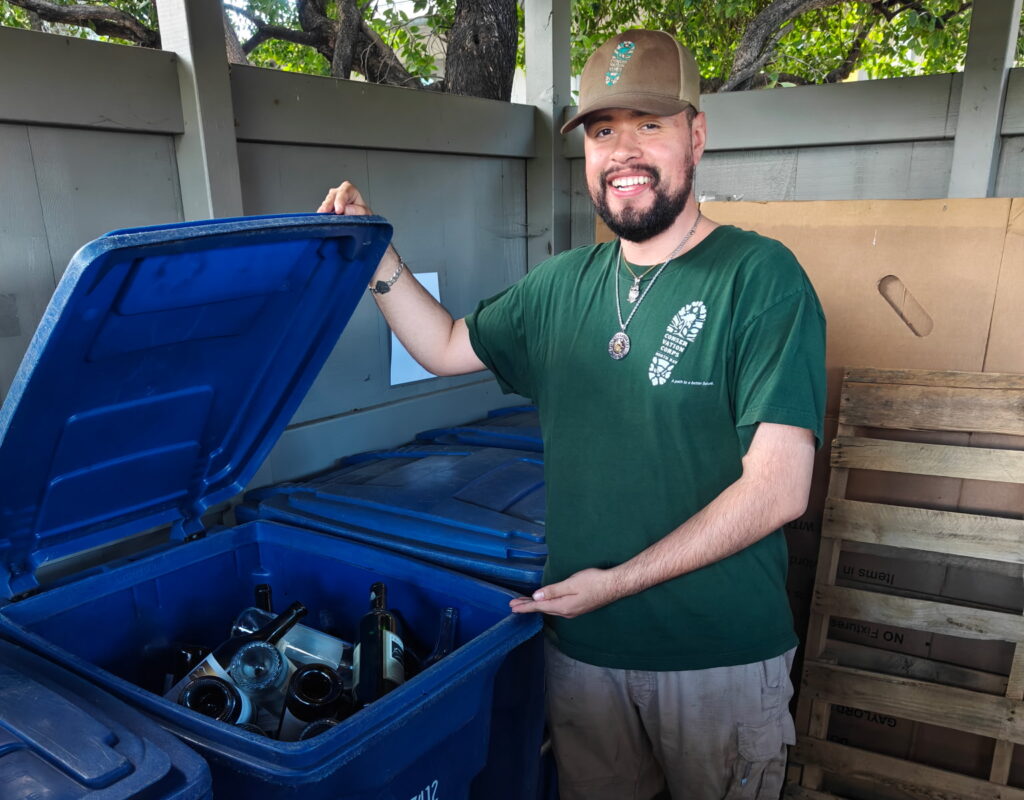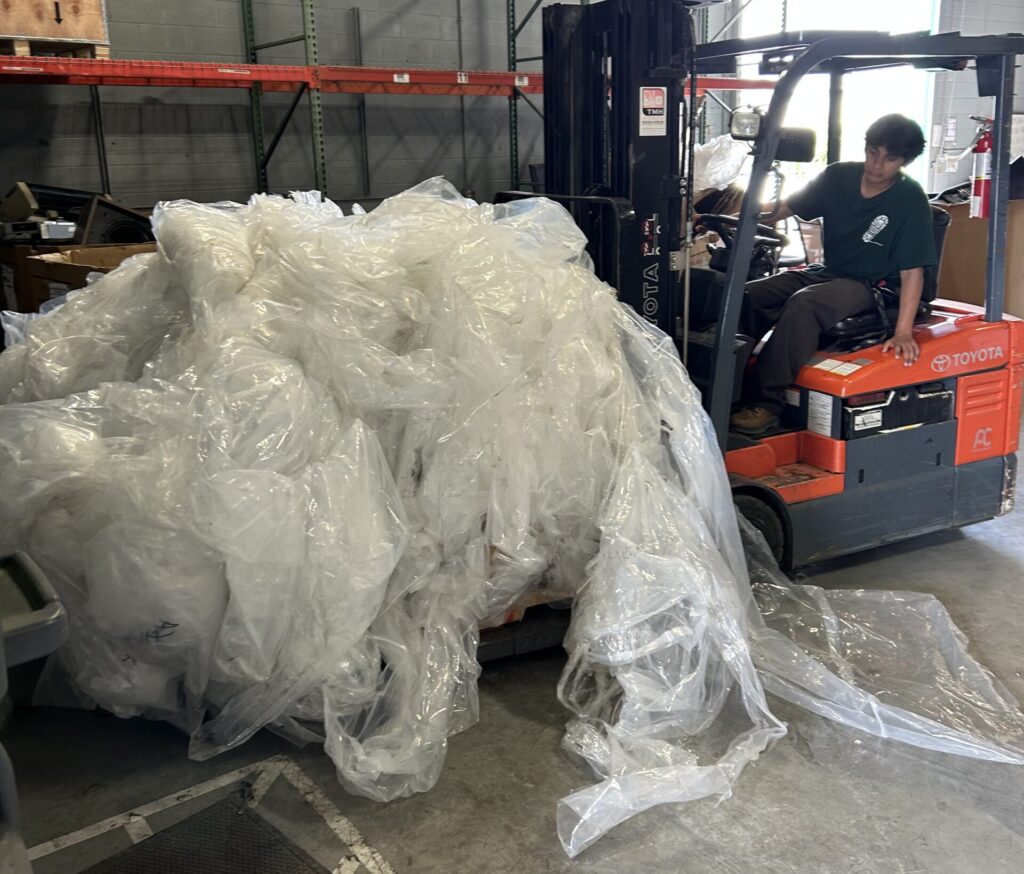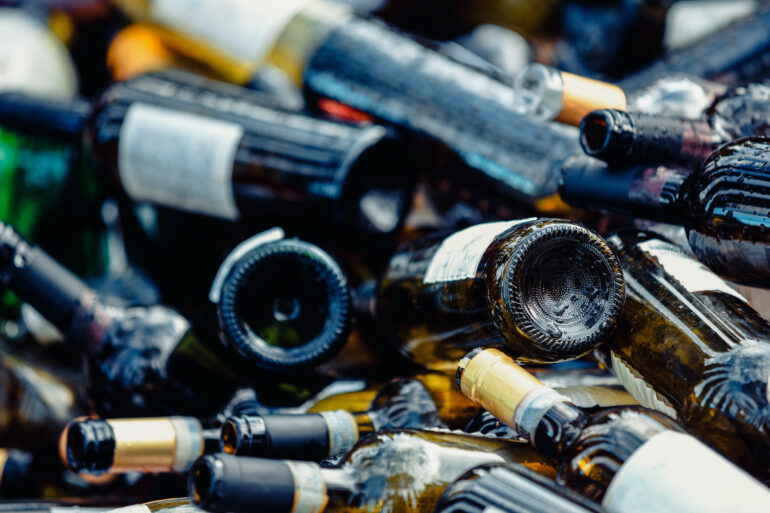As sustainability efforts expand across the country, a growing number of initiatives are rethinking how packaging waste is handled in industries like wine and spirits — from glass bottles to shipping boxes and plastic wrap.
In Northern California, one program is offering a practical, scalable model that reduces landfill waste while building green career skills for the next generation.
Blending Sustainability With Workforce Development
Make It Better Foundation partner Conservation Corps North Bay (CCNB), a nonprofit organization focused on youth development and environmental stewardship, is helping reshape how wineries dispose of waste. A local leader in waste management, Conservation Corps North Bay’s (CCNB) Zero Waste department is continually expanding its repertoire of materials for recycling, actively diverting waste away from landfills. Funded by an annual grant from CalRecycle, CCNB now collects glass bottles, cardboard, and PET/plastic wrap from wineries and tasting rooms throughout Sonoma and Napa counties, helping California’s statewide recycling goals.
A direct result of legislative shifts to California’s Beverage Container Recycling Program (the Bottle Bill), which incorporated wine and distilled spirits containers, CCNB joins broader efforts to enhance recycling rates, reduce litter, and protect California’s environment. These shifts also improve the infrastructure to support recycling efforts.

CCNB now has two full routes, which have increased the tonnage of materials collected annually in the North Bay.
But its most meaningful impact may not be measured in pounds of recycled materials. The program provides valuable hands-on job training hours for young adults, known as corpsmembers, many of whom are exploring career paths for the first time. gain experience with record-keeping and data management, as all materials are subject to extensive tracking and reporting. They utilize skills with tools and equipment, such as forklifts, pallet jacks, and lift jacks, and learn to manage partner participation, ensuring they keep up with the demand for these services. Exposure to new industries also broadens options for corpsmembers as they explore what type of careers to pursue after completing the program.

A Circular Economy in Action
Since launching its wine industry routes, CCNB has recycled more than 22,000 pounds of glass, 5,000 pounds of cardboard, and 6,000 pounds of PET/plastic wrap — materials that are typically difficult for small businesses to recycle at scale. The effort has not only helped wineries meet sustainability goals, but also demonstrated how local organizations can bridge gaps in infrastructure left by traditional waste management systems.
As climate challenges and packaging waste continue to grow nationwide, programs like CCNB’s offer a roadmap for integrating environmental solutions with workforce empowerment.
“This project has been a great expansion of Zero Waste programs operating within the North Bay. We are poised to make a significant impact on local recycling efforts and overall sustainability within the wine industry,” says Brandon Benton, Zero Waste Manager.
A Model for Other Regions
While this initiative is rooted in Northern California’s wine country, the approach could be replicated in other industries and regions — from breweries in the Pacific Northwest to distilleries in Kentucky. The key is pairing sustainability with skill-building, giving young people a path forward while helping businesses lighten their environmental footprint.
Supporting the CCNB Mission
Your next wine purchase or visit to Wine Country can do more than offer a scenic escape — it can also support environmental sustainability and job training for young adults. These wineries partner with CCNB’s Zero Waste program to reduce landfill waste and invest in the next generation of green workers.
Sonoma
- Wilson Artisan Wines
- St. Francis Winery & Vineyards
- Paradise Ridge Winery
- Punchdown Cellars
- Magnolia Wine Services
- Anaba Winery
- Copain Wines
Napa/ St. Helena
- Frog’s Leap Winery
- Honig Vineyard & Winery
- Turnbull Wine Cellars
- St. Supéry Estate Vineyards & Winery
- Heitz Cellar
- Cuvasion Winery
How to Help
If you’re unable to visit a California winery, you can make a donation to support the CCNB mission. Donations help corpsmembers receive paid job training, career coaching, and educational support while working on projects that preserve and protect our environment and communities.


